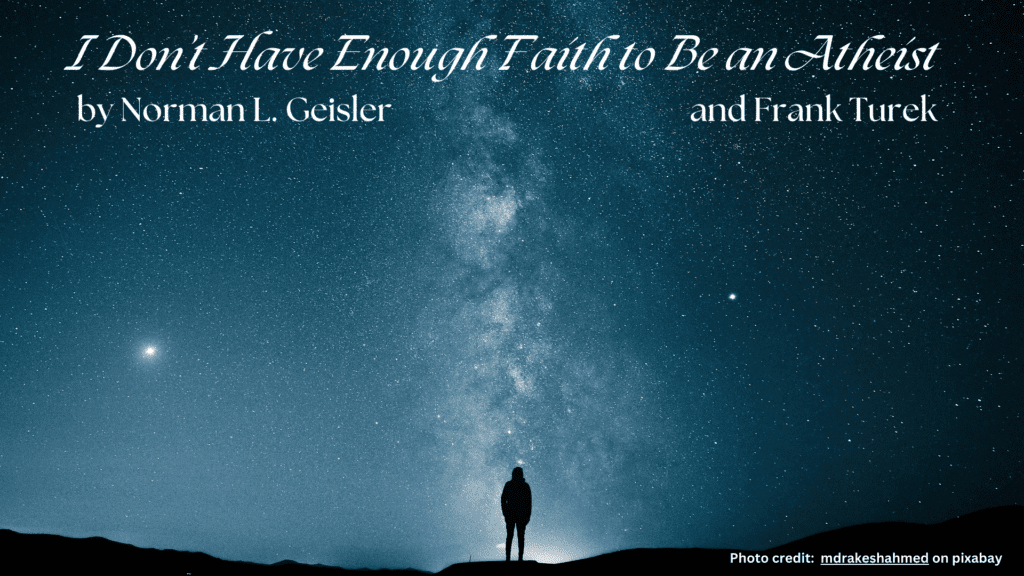Key Takeaways
- The book argues that atheism requires more faith than theism, challenging common perceptions.
- Norman L. Geisler and Frank Turek provide evidence supporting theism, contrasting it with atheistic beliefs.
- The authors use logical reasoning and scientific evidence to back their claims.
- The book is aimed at both skeptics and believers, encouraging critical thinking about faith and atheism.
- Understanding the arguments in this book can enhance one’s ability to engage in discussions about religion and atheism.
Introduction to I Don’t Have Enough Faith to Be an Atheist
Have you ever wondered what it truly means to have faith? Or how faith intersects with the concept of atheism? “I Don’t Have Enough Faith to Be an Atheist” by Norman L. Geisler and Frank Turek explores these profound questions. This book serves as a guide for those who are curious about the complex relationship between faith and reason. It challenges readers to reconsider what they know about atheism and theism, offering new perspectives on these age-old debates.
Throughout my life, I have often thought that I don’t have enough faith to believe in evolution. Geisler and Turek agree with me on the topic of evolution, but they discuss many other issues, as well. I found the book fascinating from start to finish!
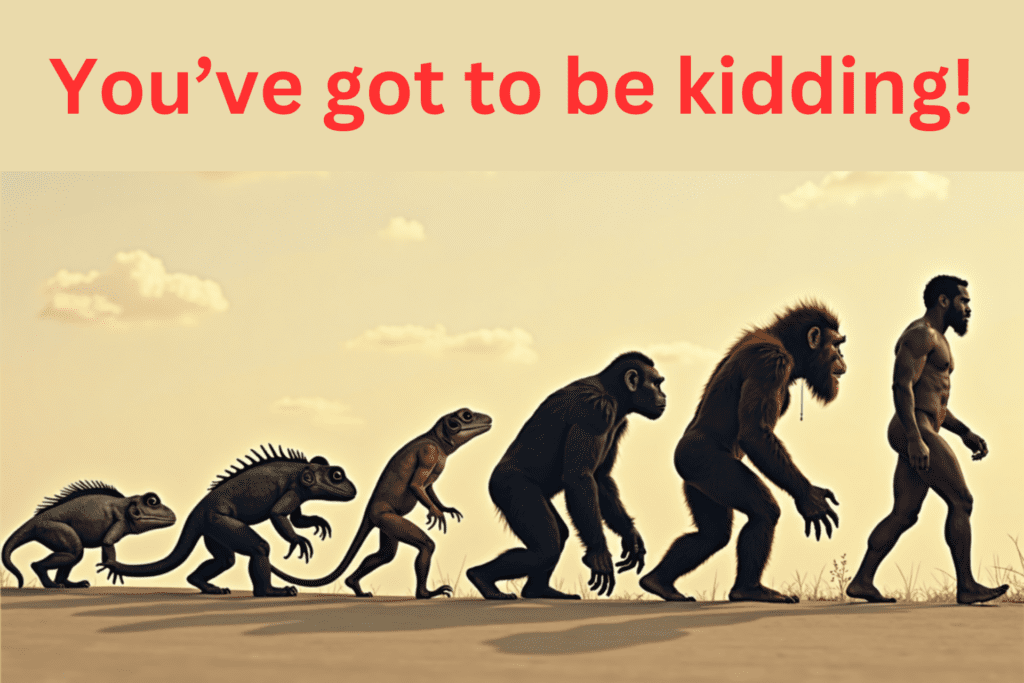
In this article, I will take you through the main ideas presented in the book, analyze its core arguments, and provide insights into the authors’ backgrounds and intentions. Whether you’re a skeptic, a believer, or someone in between, there’s something here for you to consider.
Main Idea and Purpose
At its heart, the book posits a controversial yet intriguing idea: that atheism requires a greater leap of faith than belief in a deity. This notion is central to the authors’ argument and serves as the foundation upon which they build their case. Through a combination of philosophical reasoning and scientific evidence, Geisler and Turek aim to demonstrate that theism, specifically Christianity, is a more rational belief system than atheism.
“The title of the book is very appropriate, and throughout the book, the authors very effectively prove why they ‘Don’t Have Enough Faith To Be An Atheist’.”
The authors meticulously lay out their arguments, covering a wide range of topics from the origins of the universe to the existence of moral absolutes. By the end of the book, readers are encouraged to reevaluate their understanding of faith, atheism, and the evidence that supports each worldview.
Authors’ Background: Norman L. Geisler and Frank Turek
Understanding the authors behind the book can provide valuable context to the arguments they present. Norman L. Geisler (July 21, 1932 – July 1, 2019) was a renowned Christian apologist, philosopher, and theologian, known for his extensive work in the field of Christian apologetics. With over 100 books to his name, Geisler’s contributions to the discourse on religion and philosophy are significant.
Frank Turek, co-author of the book, is an award-winning author and speaker. He is the president of CrossExamined.org, an organization dedicated to defending and promoting the Christian faith. Turek’s dynamic speaking style and ability to engage audiences make him a compelling figure in the world of apologetics.
Target Audience
The book is written for a broad audience, including skeptics, believers, and those who find themselves somewhere in between. Its accessible language and logical structure make it suitable for readers of various ages, including teenagers and adults. The authors aim to equip readers with the tools to engage in meaningful discussions about faith and atheism, encouraging critical thinking and open-minded exploration of these complex topics.
Core Arguments in the Book
The book’s core arguments revolve around the idea that theism, particularly Christianity, is a more reasonable belief system than atheism. Geisler and Turek use a combination of philosophical reasoning, scientific evidence, and logical analysis to support their claims.
The Concept of Faith in Atheism
One of the book’s primary arguments is that atheism, contrary to popular belief, requires a significant amount of faith. This faith is not in a deity but in the absence of one. The authors argue that atheists must rely on faith to explain various phenomena that theism addresses more comprehensively.
- The origin of the universe: Atheists must have faith in a naturalistic explanation for the universe’s existence.
- Moral absolutes: Atheists need to justify the existence of objective morality without a divine source.
- The fine-tuning of the universe: Atheists must account for the precise conditions that allow life to exist.

These points form the backbone of the authors’ argument that atheism demands a greater degree of faith than many realize. By challenging the assumptions underlying atheistic beliefs, the book invites readers to critically examine their own perspectives on faith and reason.
Evidence for Theism versus Atheism
Geisler and Turek present a wealth of evidence in favor of theism, drawing from various fields such as cosmology, biology, and philosophy. They argue that the evidence supporting theism is more compelling and coherent than that which supports atheism. This evidence includes the fine-tuning of the universe, the existence of moral absolutes, and the historical reliability of religious texts.
Importance of Apologetics
Throughout the book, the authors emphasize the importance of apologetics (the discipline of defending and rationalizing religious beliefs.) Apologetics is crucial for engaging with skeptics and providing reasoned answers to challenging questions. By equipping readers with the tools of apologetics, Geisler and Turek aim to empower them to confidently discuss their beliefs and engage in meaningful dialogue with others.
Analysis of Key Themes
The book delves into several key themes that are essential to understanding its arguments. These themes include the role of science in belief systems, the nature of morality, and the limitations of skepticism. By exploring these themes, the authors provide a comprehensive framework for evaluating the merits of theism and atheism.
The Role of Science in Belief Systems
Science plays a pivotal role in shaping our understanding of the universe and, by extension, our belief systems. In I Don’t Have Enough Faith to Be an Atheist, Geisler and Turek argue that scientific discoveries often align more closely with theistic beliefs than with atheistic ones. For instance, the Big Bang theory suggests that the universe had a beginning, which is consistent with the idea of a created universe.
The authors emphasize that the fine-tuning of the universe is another scientific concept that supports theism. The precise conditions required for life to exist point towards an intelligent designer. Atheists, on the other hand, must rely on the multiverse theory or other speculative explanations that lack empirical evidence. Therefore, the authors suggest that science, when interpreted without bias, supports the existence of a higher power.
Moral Relativism and Objective Morality
Moral relativism posits that moral truths are not absolute but vary based on culture or personal preference. In contrast, objective morality asserts that certain moral principles are universally true. Geisler and Turek argue that atheism struggles to provide a foundation for objective morality without invoking a higher power.
They claim that if there is no God, then moral values are merely human constructs with no ultimate authority. However, most people intuitively recognize certain acts, like murder or theft, as inherently wrong. The authors argue that the existence of objective moral values points to a moral lawgiver, which aligns with theistic beliefs.
The Limitations of Skepticism
Skepticism encourages questioning and critical thinking, but Geisler and Turek caution against taking skepticism to an extreme. They argue that excessive skepticism can lead to a rejection of all knowledge, including scientific and historical facts. This radical doubt undermines the very foundations of rational discourse.
In their view, healthy skepticism should lead to a balanced approach where evidence is critically evaluated rather than dismissed outright. By encouraging readers to apply skepticism judiciously, the authors aim to foster a more reasoned exploration of both theistic and atheistic claims.
Comparison with Other Worldviews
Understanding how the arguments in I Don’t Have Enough Faith to Be an Atheist compare with other worldviews can provide deeper insights into its claims. Geisler and Turek explore these comparisons to highlight the distinctiveness and strengths of their arguments.
Atheism versus Agnosticism
Atheism and agnosticism are often lumped together, but they represent different positions on belief and knowledge. Atheism is the belief that there is no God, while agnosticism is the position that the existence of God is unknown or unknowable. Geisler and Turek argue that atheism requires a definitive stance that lacks sufficient evidence, whereas agnosticism maintains a more open-ended view.
The authors suggest that agnosticism aligns more closely with the scientific method, which is open to new evidence and interpretations. By distinguishing between these two worldviews, they aim to clarify the limitations and assumptions inherent in atheistic claims.
Christianity versus Secular Humanism
Christianity and secular humanism offer contrasting views on life’s purpose and moral values. Christianity posits that humans are created with intrinsic value and purpose, grounded in a relationship with God. Secular humanism, on the other hand, finds meaning through human reason and ethics, independent of divine influence.
Geisler and Turek argue that secular humanism struggles to provide a consistent basis for moral values and human dignity without invoking a higher power. They contend that Christianity offers a more coherent and fulfilling explanation for human existence and morality.
Philosophical Underpinnings
The philosophical foundations of theism and atheism are crucial to understanding their respective arguments. Geisler and Turek delve into the philosophical principles that underpin their claims, such as the law of non-contradiction and the principle of sufficient reason.
They argue that atheism often relies on assumptions that contradict these principles, leading to inconsistencies in its worldview. For example, the belief in a universe without a cause violates the principle of sufficient reason, which states that everything must have an explanation.
By examining these philosophical underpinnings, the authors aim to demonstrate the logical coherence of theism and the challenges faced by atheism in maintaining a consistent worldview.
“If you’re still a skeptic after reading I Don’t Have Enough Faith to Be an Atheist, then I suspect you’re living in denial!”
Critiques and Counterarguments
While I Don’t Have Enough Faith to Be an Atheist presents compelling arguments, it’s essential to consider critiques and counterarguments to gain a well-rounded understanding of the book’s impact.
Strengths of Geisler and Turek’s Arguments
One of the book’s strengths lies in its logical structure and use of evidence. Geisler and Turek present their arguments in a clear and accessible manner, making complex ideas understandable for a wide audience. Their use of scientific evidence and philosophical reasoning adds credibility to their claims.
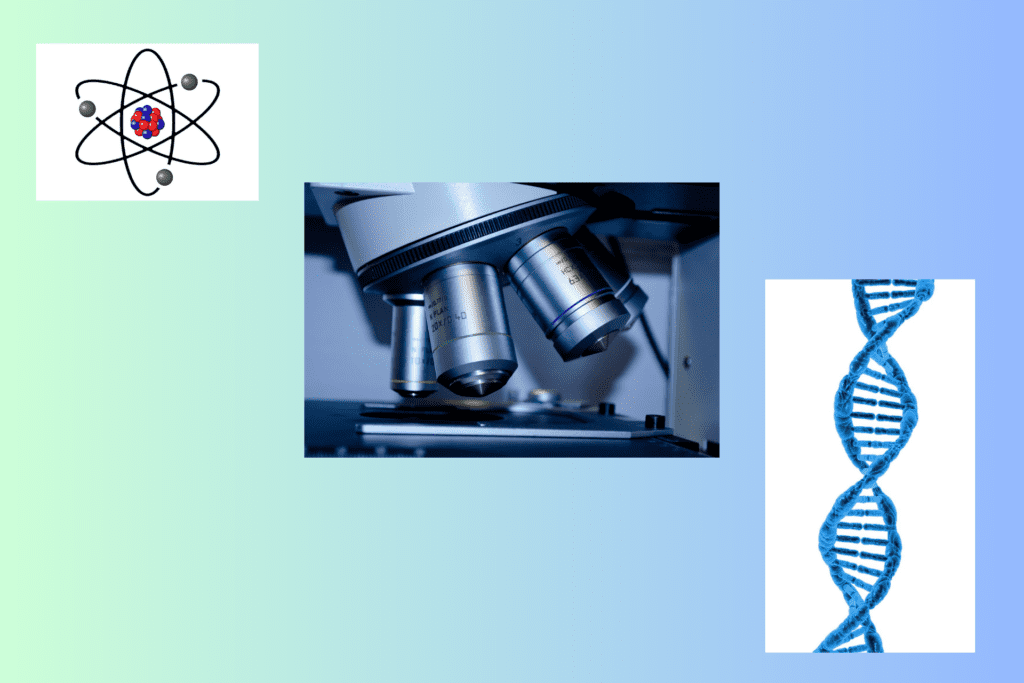
Another strength is the authors’ ability to engage readers with thought-provoking questions and challenges. By encouraging readers to critically examine their beliefs, the book fosters a deeper exploration of faith and reason.
Potential Weaknesses or Gaps
Despite its strengths, the book has faced criticism for certain gaps in its arguments. Some critics argue that the authors rely too heavily on Christian doctrine, which may not resonate with readers from different religious backgrounds. This focus can limit the book’s appeal to a broader audience.
Additionally, some readers may find the book’s treatment of atheistic arguments lacking in depth. Critics suggest that the authors could have engaged more thoroughly with the nuances of atheistic philosophy and addressed counterarguments more robustly.
Conclusion and Personal Reflection
“I Don’t Have Enough Faith to Be an Atheist will equip, exhort, and encourage you ‘to give the reason for the hope that you have . . . with gentleness and respect’.”
As I reflect on I Don’t Have Enough Faith to Be an Atheist, I’m struck by its ability to provoke thought and encourage dialogue about faith and reason. The book challenges readers to critically examine their beliefs and consider the evidence supporting different worldviews. It serves as a reminder that faith and reason are not mutually exclusive but can coexist harmoniously.
One of the book’s strengths is its accessibility. Geisler and Turek present complex ideas in a way that is easy to understand, making it suitable for a wide range of readers. Whether you’re a skeptic, a believer, or someone exploring these topics for the first time, the book offers valuable insights and encourages open-minded exploration.
Ultimately, the book’s impact lies in its ability to spark meaningful conversations about faith, atheism, and the evidence that supports each perspective. By engaging with the arguments presented in the book, readers can gain a deeper understanding of their own beliefs and the beliefs of others.
Overall Impact on Readers
The book has made a significant impact on readers, particularly those interested in exploring the intersection of faith and reason. Many readers appreciate the authors’ use of evidence and logical reasoning to support their claims, finding it a compelling and thought-provoking read.
For those new to the topics of faith and atheism, the book serves as an introduction to the key arguments and evidence that underpin these worldviews. It encourages readers to think critically about their beliefs and engage in meaningful discussions with others.
Personal Takeaways and Insights
Personally, reading I Don’t Have Enough Faith to Be an Atheist has deepened my understanding of the complexities of faith and atheism. The book has encouraged me to approach these topics with an open mind and a willingness to consider different perspectives.
One of the most valuable insights I’ve gained is the importance of evidence and reason in shaping our beliefs. The authors demonstrate that faith is not blind acceptance but can be grounded in logical reasoning and empirical evidence.
As I was listening to I Don’t Have Enough Faith to Be an Atheist, I realized how careless I’ve been all my life. I was raised in the church and never did much research to support my beliefs. I simply accepted the Bible by faith. Through this book and others, I’ve realized that my faith has strong foundations. For the first time, I understand why Christianity has had such a powerful impact on the world.
Overall, the book has inspired me to continue exploring the rich and nuanced discussions surrounding faith, atheism, and the evidence that supports each worldview.
Frequently Asked Questions
As we conclude this review and analysis, let’s address some common questions about I Don’t Have Enough Faith to Be an Atheist.
What is the main argument in I Don’t Have Enough Faith to Be an Atheist?
The main argument of the book is that atheism requires more faith than theism. Geisler and Turek contend that the evidence supporting theism, particularly Christianity, is more compelling and coherent than that which supports atheism. They argue that atheism relies on assumptions and speculative explanations that lack empirical evidence.
How do the authors define “faith” in the context of atheism?
In the book, faith is defined as a belief or trust in something that cannot be proven with absolute certainty. The authors argue that atheism requires faith in the absence of a deity, as it relies on naturalistic explanations for phenomena that theism addresses more comprehensively.
They suggest that this faith is not in a deity but in the absence of one, and that atheists must have faith in various explanations for the universe’s existence, moral values, and the fine-tuning of the universe.
What makes the book suitable for teens and adults?
The book’s accessible language and logical structure make it suitable for both teens and adults. Geisler and Turek present complex ideas in a way that is easy to understand, allowing readers of various ages to engage with the material.
Are there any related works or study guides?
Yes, there are related works and study guides available for those interested in delving deeper into the topics discussed in the book. The authors have also published other books on apologetics and the evidence for Christianity, which can serve as valuable resources for further exploration.
Additionally, there are study guides and workbooks available that accompany the book, providing readers with questions and exercises to enhance their understanding of the material.
How has the book been received by its readers?
The book has received positive reviews from many readers, particularly those interested in exploring the intersection of faith and reason. Readers appreciate the authors’ use of evidence and logical reasoning to support their claims, finding it a compelling and thought-provoking read.
However, the book has also faced criticism from some readers, particularly those from the atheist perspective. Critics argue that the book misrepresents atheistic beliefs and relies too heavily on Christian doctrine.
***

Clicking on the book above will take you to Frank Turek’s store where you can purchase a copy if you like. The following link will take you to a page where you will find workbooks and other related materials: https://impactapologetics.com/
If you want to do a general Bible study, please check out my offerings below:
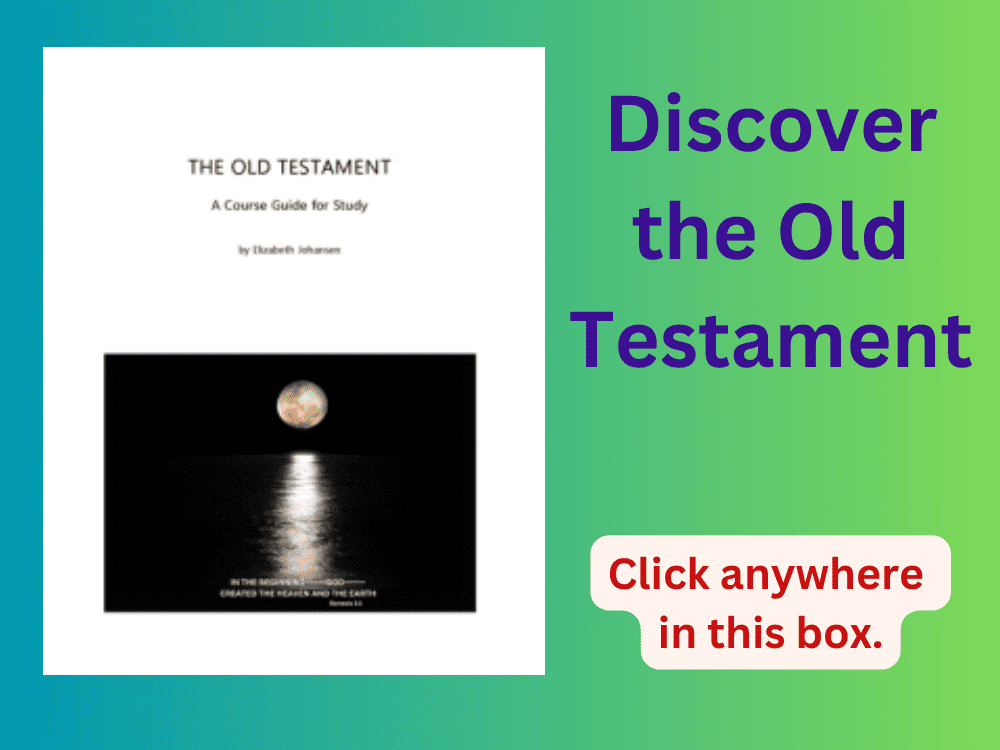
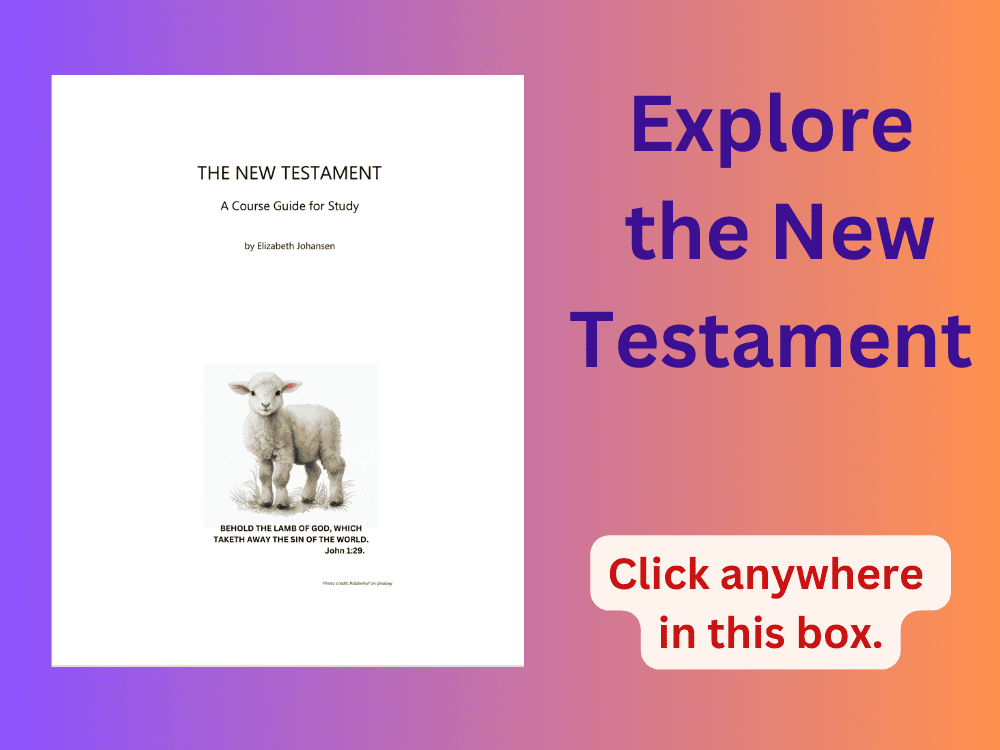
Here are links to my blog indexes, which will make it quick and easy for you to find another post to read.
∙ Blogs with a Spiritual Theme
∙ Blogs about Books I Like: Fiction
∙ Blogs about Books I Like: Nonfiction
∙ Blogs for Holidays and Other Special Days
∙ Miscellaneous Blogs
